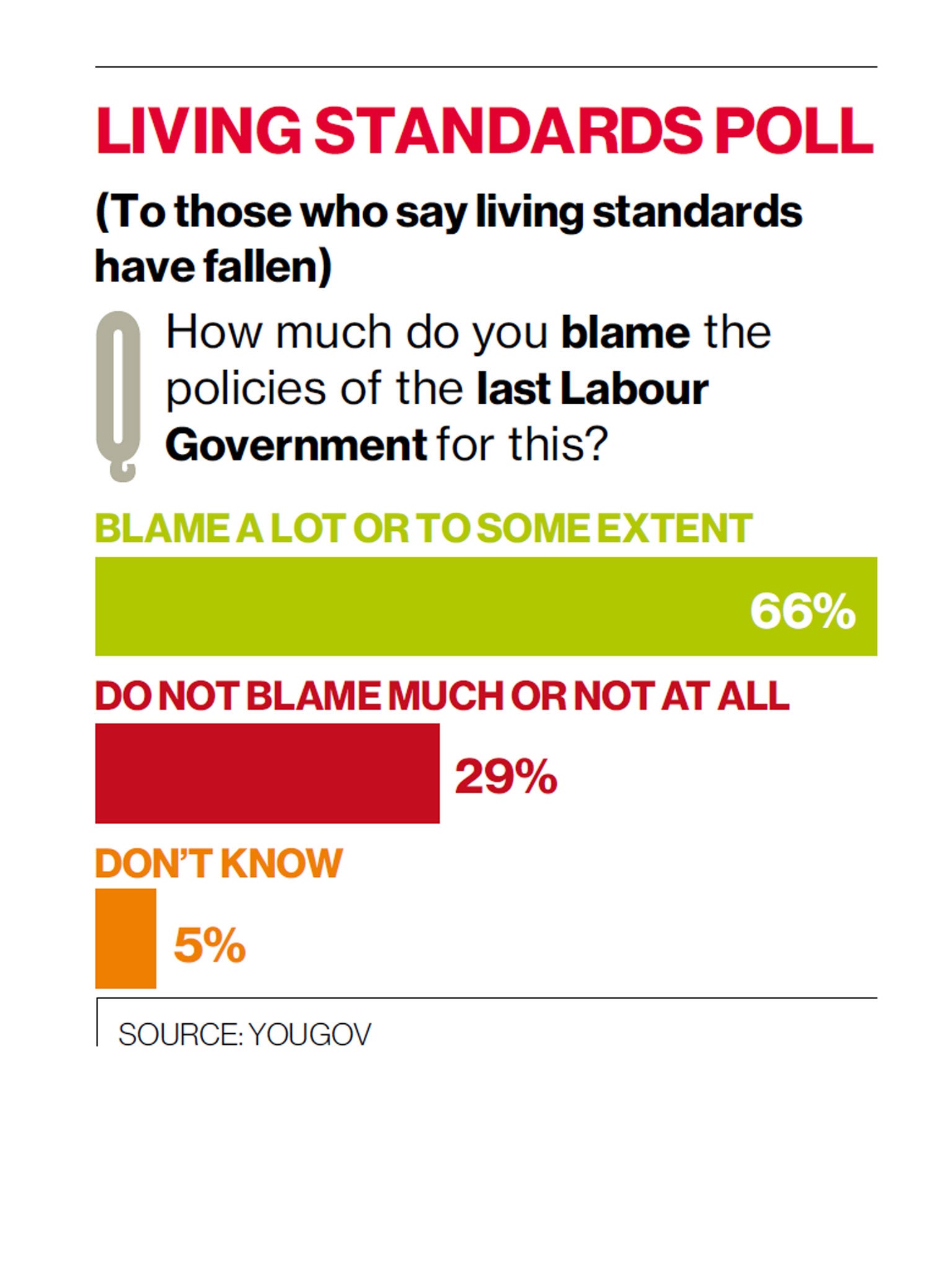Exclusive poll: Labour just as much to blame for current crisis as Coalition, say voters
Blow for Ed Miliband as he prepares to put the cost of living at the heart of his appeal to the country

Voters blame the current crisis in living standards on the previous Labour Government as much as the Coalition, according to a new survey.
The finding is a blow to Ed Miliband as he prepares to put the cost of living at the heart of his appeal to the country at Labour’s annual conference in Brighton, which starts on Sunday.
The YouGov poll for the Labour Uncut blog also found that more than one in four people who voted Labour in 2010 (26 per cent) say they will not back the party at the 2015 election. Some 18 per cent of Labour’s “lost voters” now support the Conservatives, while 10 per cent back the Liberal Democrats, six per cent Ukip, five per cent the Greens and 41 per cent are undecided.
The survey suggests Mr Miliband faces an uphill struggle as he tries to make political capital out of the squeeze experienced by millions of families. Some 85 per cent of people agreed that in recent years prices have risen faster than wages and living standards have fallen.
When these people were asked how much they blame this on the last Labour Government, 30 per cent blamed it a lot and 36 per cent to some extent, while 29 per cent did not think it was responsible. The figures were remarkably similar when the public were asked if they blamed the cost of living crisis on the Coalition. Some 31 per cent blamed it a lot and 40 per cent to some extent, while 25 per cent did not hold it responsible.
Overall Labour is blamed by 66 per cent and the Coalition by 71 per cent, a small margin which casts doubt on Labour’s plan to make the crisis its trump card now that the economy is growing again. Even 56 per cent of trade unionists and 37 per cent of current Labour supporters blame the previous government.
Atul Hatwal, the editor of Labour Uncut, warned: “Simply attacking the Tories and saying the words ‘cost of living crisis’ will not be enough for Labour. First, Ed Miliband needs to become a prime-minister-in-waiting. Second, Labour must regain its economic credibility.”
In another setback for Mr Miliband, Patrick Diamond, a former Downing Street adviser to Tony Blair and Gordon Brown, said Labour has failed to set out a convincing long-term economic strategy. In a report for the Civitas think-tank to be published next month, he said Labour must avoid a “business as usual” approach to growth and would be “profoundly mistaken” to rely on a Keynesian boost. Neither that or the austerity favoured by the Coalition “offer a viable political economy strategy for the UK over the decade ahead,” Mr Diamond said.
Labour shrugged off the poll findings, pointing to other surveys showing that by a margin of 2-1, the public regard the cost of living crisis as a more important priority than cutting the deficit. The theme of the Brighton conference will be that “One Nation Labour” has a plan to tackle the crisis. The party is expected to unveil measures to ease the squeeze on issues such as the national minimum wage, gas and electricity prices and housing. Labour strategists insist the plans will reassure the public the party is in tune with their concerns and “that the next Labour Government will be different from the last.”
A Labour source said: “Prices have risen faster than wages in 38 of the 39 months that David Cameron has been in Downing Street. Working people are an average of almost £1,500 a year worse off under this Government.”
Join our commenting forum
Join thought-provoking conversations, follow other Independent readers and see their replies
Comments
Bookmark popover
Removed from bookmarks